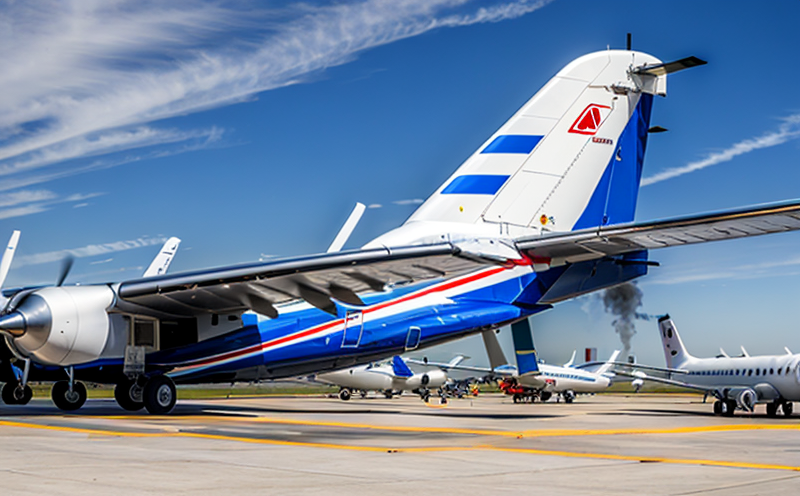Fuel compatibility testing for aircraft fuel tanks and fuel lines
The Crucial Role of Fuel Compatibility Testing for Aircraft Fuel Tanks and Fuel Lines Ensuring Airworthiness and Compliance
In the world of aviation, safety is paramount. The air transport industry relies on meticulous attention to detail and rigorous testing procedures to ensure that aircraft fuel tanks and fuel lines are compatible with a wide range of fuels. This is where Eurolab comes in a leading provider of laboratory services specializing in fuel compatibility testing for aircraft fuel tanks and fuel lines.
What is Fuel Compatibility Testing?
Fuel compatibility testing is an essential process that evaluates the interaction between different types of fuels and the materials used to construct aircraft fuel tanks and fuel lines. This critical assessment ensures that these components can withstand the corrosive effects of various fuels without compromising airworthiness or safety standards.
Why is Fuel Compatibility Testing Essential for Businesses?
The aviation industry is governed by strict regulations, set forth by organizations such as the Federal Aviation Administration (FAA) and the European Aviation Safety Agency (EASA). Failure to comply with these regulations can result in costly fines, loss of business reputation, and even revocation of operating licenses.
Conducting fuel compatibility testing helps businesses avoid these risks by
Ensuring compliance with regulatory requirements
Preventing potential catastrophic failures that could compromise air safety
Maintaining the integrity and performance of aircraft systems
Reducing maintenance costs associated with frequent repairs or replacements
Advantages of Using Fuel Compatibility Testing for Aircraft Fuel Tanks and Fuel Lines
Eurolabs fuel compatibility testing service offers numerous benefits to businesses in the aviation industry. Some key advantages include
Key Benefits of Eurolabs Fuel Compatibility Testing Services
Compliance Assurance Our expert laboratory services ensure that your aircraft fuel tanks and fuel lines meet all relevant regulatory requirements, reducing the risk of non-compliance.
Airworthiness Certification By verifying the compatibility of fuels with aircraft components, we help maintain airworthiness standards, ensuring safe flight operations.
Reduced Maintenance Costs Regular testing helps identify potential issues before they become major problems, saving you money on costly repairs or replacements.
Improved Fuel Efficiency Compatible fuel systems enable optimal fuel consumption, reducing operational costs and environmental impact.
Increased Safety By eliminating the risk of fuel-related failures, we contribute to a safer flying environment for passengers and crew.
How Does Eurolabs Fuel Compatibility Testing Process Work?
Our state-of-the-art laboratory employs cutting-edge technology and expert personnel to conduct comprehensive testing. The process involves
Sample Collection We collect representative samples from aircraft fuel tanks and fuel lines.
Material Analysis Our team conducts detailed analysis of the materials used in the construction of these components.
Fuel Compatibility Testing We subject the materials to various fuels, simulating real-world conditions, to assess compatibility.
Data Interpretation Our experts analyze results, providing actionable recommendations for improvement.
QA Section
Q What types of fuels can be tested?
A Eurolabs fuel compatibility testing services are designed to accommodate a wide range of fuels, including conventional jet fuels (Jet-A1), alternative fuels (SAF/SPK), and biofuels (HEFA/ATJ).
Q Can I trust the accuracy of the results?
A Absolutely. Our laboratory is equipped with state-of-the-art technology, and our team consists of experienced experts in materials science and chemistry.
Q How long does the testing process take?
A The duration of the testing process varies depending on the complexity of the samples and fuels involved. However, we guarantee prompt turnaround times without compromising accuracy.
Q Do I need to prepare my samples before sending them to Eurolab?
A Yes. Please follow our sample preparation guidelines carefully to ensure accurate results.
Conclusion
In conclusion, fuel compatibility testing for aircraft fuel tanks and fuel lines is an essential process that requires the expertise of a reputable laboratory like Eurolab. By leveraging our comprehensive services, businesses can ensure compliance with regulatory requirements, maintain airworthiness standards, reduce maintenance costs, improve fuel efficiency, and ultimately contribute to a safer flying environment.
Dont risk your businesss reputation or operational safety by neglecting fuel compatibility testing. Contact us today to learn more about how Eurolab can support your aviation-related needs.
Additional Resources
Understanding the Importance of Fuel Compatibility Testing in Aviation(link)
The Benefits of Alternative Fuels for the Aviation Industry(link)
Best Practices for Ensuring Airworthiness in Aircraft Maintenance(link)




